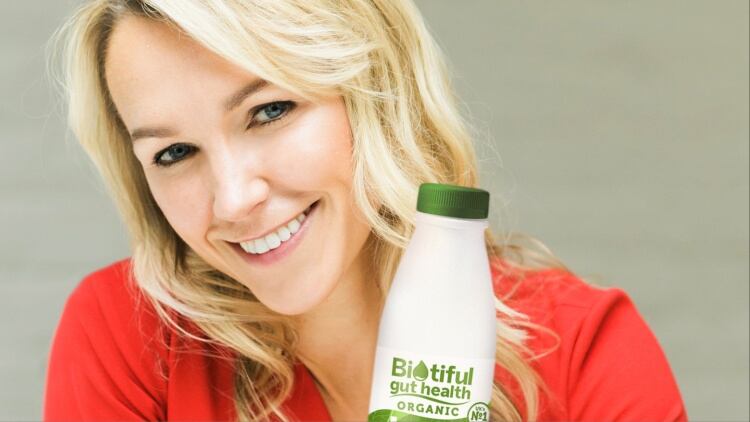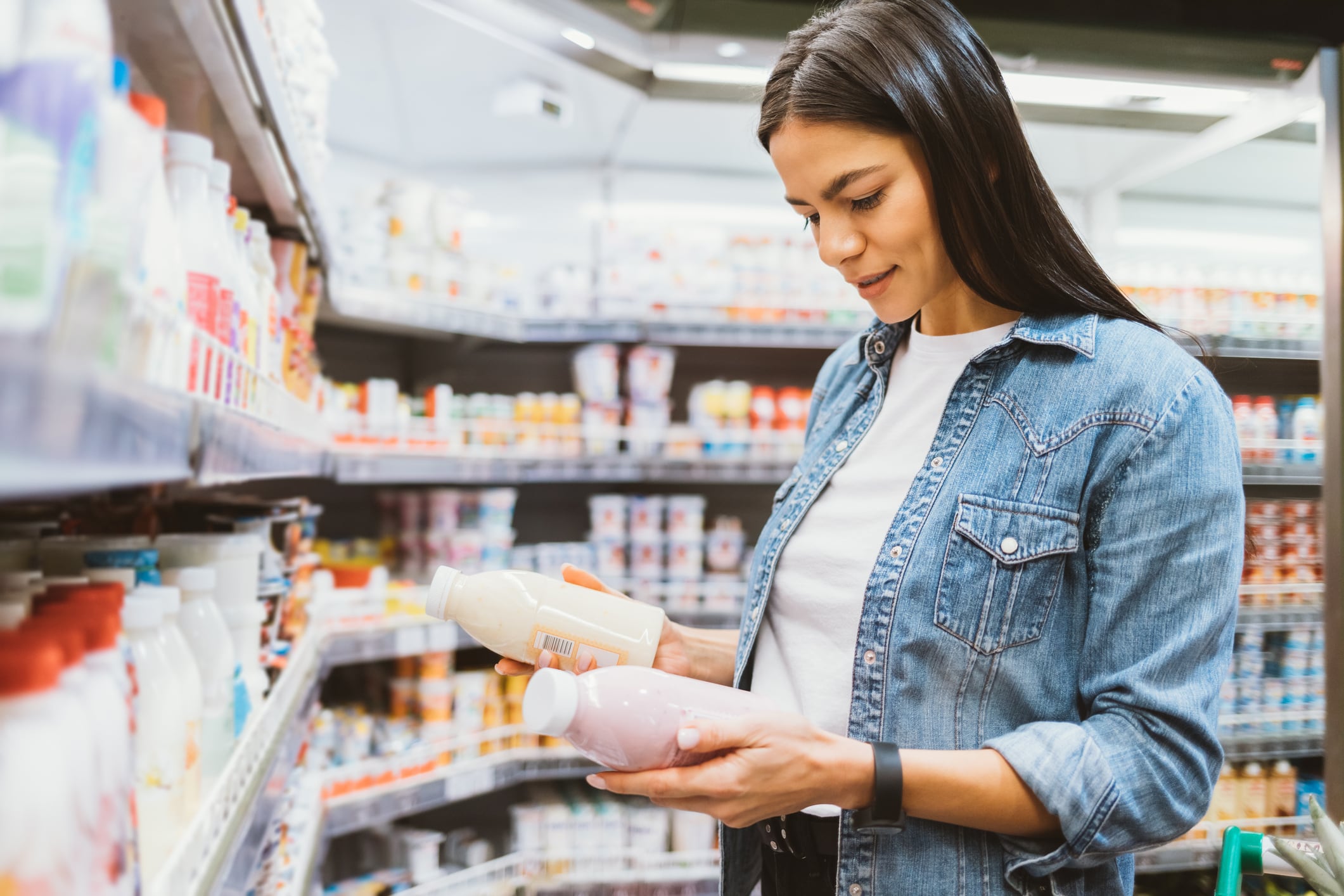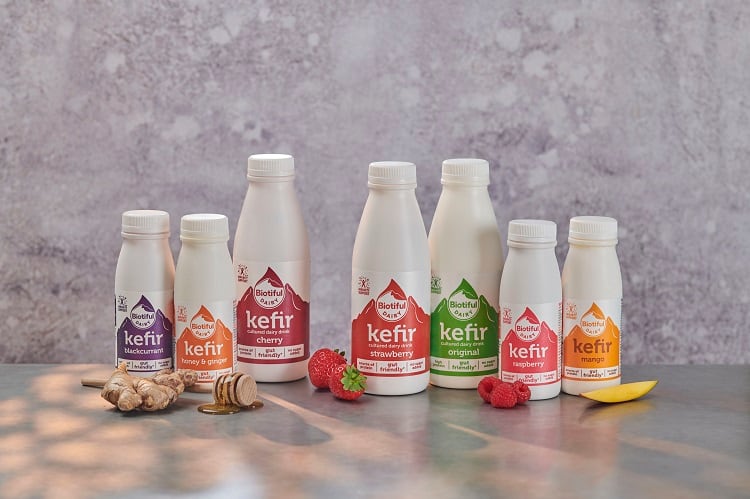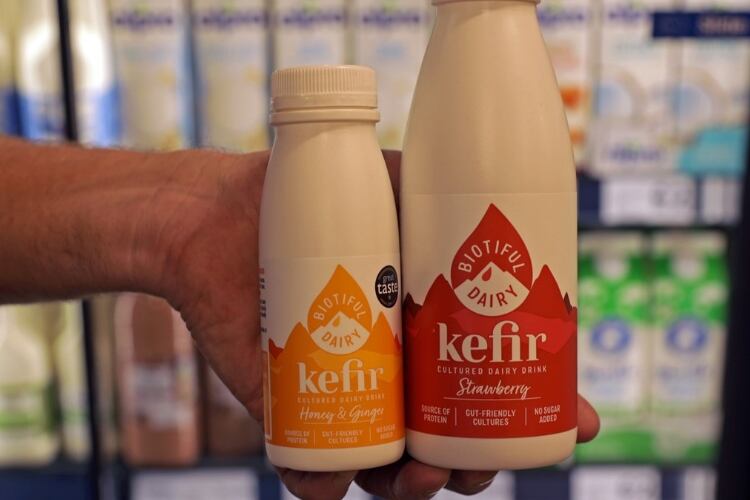The kefir category has exploded in the past five years, going from niche to mainstream, as consumers focus their attention on natural foods with functional benefits.
Having been confined to the ethnic dairy sections years ago, the cultured, low-lactose, probiotic-rich drink has a firm presence in the chilled dairy aisle today.
Kefir is also made into yogurts, ice creams, pouches, frozen popsicles and other formats beyond beverages and is increasingly utilised in cooking applications such as marinades, salad dressing, smoothies, and more.
In baking, it is increasingly used as a buttermilk, yogurt or milk alternative, showing its versatility as both an ingredient and a standalone product.
And consumers keep on buying kefir. According to Kantar, the UK market is experiencing significant value growth across both potted and liquid formats, primarily driven by new shoppers and more trips.
Liquid kefir, which attracts a younger demographic compared to potted, is leading this growth, we were told.
Meanwhile, the increasing use and access to GLP-1 weight loss medications is re-shaping the food and beverage space. Here, functional foods like kefir are poised to appeal to shoppers through nutritional and health benefits.
Everyone wants ‘a sip’ of the market
All these factors are leading major dairy brands from Danone North America in the US to Müller in Europe to take a keener interest in the category and its market-share leaders.
In the US, Danone twice tried to buy Lifeway Foods, Inc. at the tail end of 2024, but push-back from the Lifeway board over the valuation of the deal has so far seen the two sides unwilling to compromise. However, Lifeway has indicated it remains open to a sale.
Why consumers love small brands
While big brands have pull and power, in segments like functional foods, small brands can be even more appealing thanks to demand for authenticity, sustainability and innovation.
In FY2024, Lifeway posted net sales of $186.8m; up 17% year-over-year, and net sales of $46.9m in Q4, according to the company’s latest accounts.
Lifeway CEO Julie Smolyansky said: “We recognize the tailwind from growing consumer interest in protein-rich foods with probiotics and bioavailable nutrients and have meaningfully invested in our core branded offerings to drive trial and accelerate velocities to capture a greater share of that demand. The consumer focus on health and wellness continues to grow, and we remain focused on capitalizing on that heightened interest.”

Over in the UK, dairy major Müller UK & Ireland forged a deal to acquire kefir company Biotiful Gut Heath in a sign of market consolidation.
As we reported earlier, the deal would allow Müller to gain a foothold in the functional foods space where it currently lacks significant presence; while enabling Biotiful to continue its growth.
Biotiful, which was founded in 2012, dominates the UK kefir market alongside Yeo Valley and Bio+Me. The company made close to £2m in profit in FY2024, up from around £237,500 in 2023.
Another UK player, Yeo Valley Organic, is also experiencing value growth, according to Kantar – but its performance is hindered by a slowdown in potted kefir sales, we were told.
Yeo moved to acquire The Collective, a flavored fruit yogurt and kefir maker, earlier this year.
Where is the kefir market heading?
With yogurt drinks seeing growth across the board in the US (up 10.4% in dollars, 11.6% in units and 8.5% in volume compared to year ago according to Circana LLC.) and the UK kefir market continuing to expand, the category is poised for further growth in 2025 propelled by consumer interest in digestive health and protein intake.
Various market research agencies give the category a CAGR of between 3.7% to more than 6% and expect it to breach a valuation of $2bn+ in the next five to eight years.



